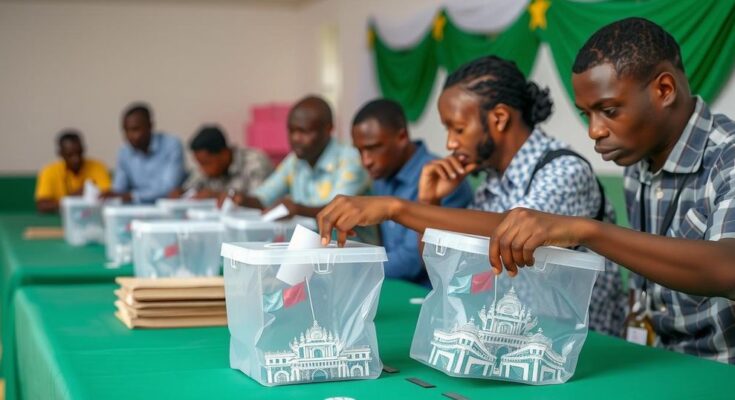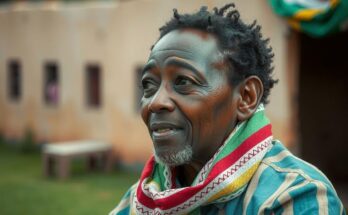Voters in Comoros are electing members for the 33-seat parliament amid allegations of electoral fraud during President Azali Assoumani’s recent re-election. A significant number of candidates are contesting, while some opposition groups have called for a boycott, citing the authoritarian nature of Assoumani’s regime. Preliminary results are expected by Friday.
Voters in Comoros are participating in parliamentary elections for the 33-seat legislature, amid controversy following the re-election of President Azali Assoumani last year, which opposition members claim was fraught with irregularities. The ruling party dismisses these allegations. More than 338,000 registered voters cast their ballots on Sunday, as the nation holds its parliamentary elections for the first time since January 2020. Nearly 100 candidates have been authorized by the Supreme Court to run, amidst accusations from Assoumani’s opponents that he is fostering an authoritarian regime and grooming his eldest son, Nour El-Fath, to succeed him in 2029. Although some opposition factions, including the Juwa party led by former President Ahmed Abdallah Sambi, advocate for a boycott in response to the political climate, others contend that participating in the elections will help expose the government’s shortcomings. A candidate from the opposition Hope of the Comoros party, Hamidou Karihila, emphasized, “The Azali regime is weakened … by participating in these elections we are contributing to further exposing the flaws in its system and accelerating its inevitable fall.” Preliminary results of the elections are anticipated by Friday.
Comoros, an island nation in the Indian Ocean, has a history of political turmoil, including coups and allegations of electoral fraud. President Azali Assoumani has been in power in various capacities since a coup in 1999 and has faced criticism for perceived authoritarianism. The political landscape in Comoros is fractured, with several opposition parties voicing concerns about the integrity of elections. Assoumani’s recent re-election has raised alarms among opponents, contributing to calls for boycotts and further dialogue about the state of democracy in the nation. The current elections are pivotal, as they follow a lengthy pause since the last parliamentary elections, and they will determine the future trajectory of the Comorian political landscape.
The parliamentary elections in Comoros represent a significant moment in the nation’s political history. Amidst allegations of dishonesty and calls for boycotts, the ruling regime faces growing opposition. As citizens exercise their right to vote, the outcome may either reinforce Assoumani’s grip on power or catalyze a shift towards greater transparency and democratic governance. The aftermath of these elections will likely shape the discourse surrounding future governance in Comoros.
Original Source: www.naroomanewsonline.com.au




